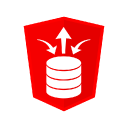How to migrate your old Developer Tools VS Code extension Oracle Database connections to the new Oracle SQL Developer extension.

How to migrate your old Developer Tools VS Code extension Oracle Database connections to the new Oracle SQL Developer extension.
It’s that much easier to get started learning SQL and Oracle Database with our new and improved Oracle LiveSQL platform! Now running 23ai!
We posted a maintenance update – bug fixes only – for our Oracle SQL Developer Extension for VS Code. Look for version 24.3.1!
Using python to vectorize some images from my instagram feed, then some REST APIs to upload them to Oracle, where I can use SQL to compare them.
You can add a comment, or leave me a question, but I won’t be looking or responding to those until Tuesday, the 22nd of October, 2024. Have no fears, I’m alive and well. But my partner and I are taking a holiday to celebrate our 25+ years married (to each other, yes!) If that sounds like a humble brag, whatever gave you the impression that I’m humble? This will be my biggest digital break since…well…
Oracle SQL Developer for VS Code 24.3 is available: new code formatter preferences and a task monitor for watching and cancelling your long running tasks.
We built you a best practices sample web application using the popular Remix framework powered by an Oracle Database and REST APIs. Let’s take a look!
A collection of thoughts and idea for the Oracle SQL Developer user looking to get started with working with Oracle Database in VS Code.
It’s that time of year again, where the Oracle Database product and development team are asking for your feedback! This survey will only take a few minutes – we’ll read every response!
Oracle SQL Developer’s extension for VS Code DOES support a code outline for SQL and PL/SQL – here’s a quick demo!